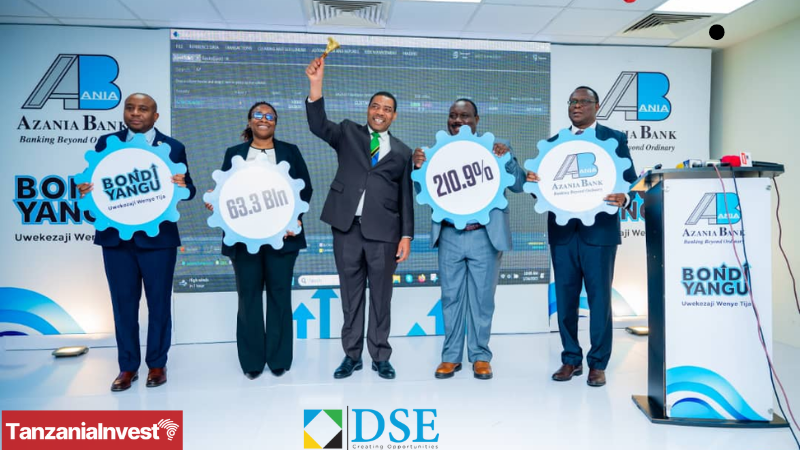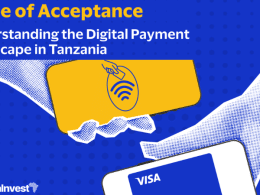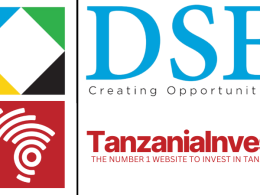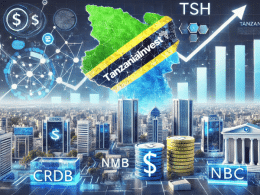Azania Bank has officially listed its oversubscribed “Bondi Yangu” bond on the Dar es Salaam Stock Exchange (DSE).
Initially targeting TZS 30 billion with an option to extend by TZS 15 billion, the bond raised TZS 63.3 billion, reflecting an oversubscription rate of 110.9% and total subscriptions of 210.9%.
The bond, launched on November 4, 2024, and closed on December 6, 2024, is the first phase of Azania Bank’s Medium-Term Note (MTN) program.
Proceeds will support strategic initiatives, including providing affordable loans to women, youth, and people with disabilities.
During the listing ceremony, Finance Minister Dr. Mwigulu Nchemba highlighted the significance of the bond’s success. “This is the kind of financial innovation our President supports to foster modern economic growth. The government remains committed to creating a conducive environment for investments in capital markets,” he said.
Dr. Nchemba also urged other institutions to explore similar avenues for raising capital, underscoring the increasing financial literacy among Tanzanians.
Azania Bank Managing Director, Dr. Esther Mang’enya, expressed gratitude to stakeholders, including the Capital Markets and Securities Authority (CMSA), the Bank of Tanzania (BoT), and the DSE, for their roles in the bond’s success.
She reassured investors of the security of their funds and noted that 97% of the bond’s investors are individuals, reflecting strong public confidence in Azania Bank.
About Azania Bank
Azania Bank, established in 1995, is a Tanzanian commercial bank headquartered in Dar es Salaam. The bank’s majority ownership is held by government-related institutions, including:
- Public Service Social Security Fund (PSSSF): 51.32%
- National Social Security Fund (NSSF): 28.04%
- National Health Insurance Fund (NHIF): 17.97%
- Workers Compensation Fund (WCF): 1.78%
- East African Development Bank (EADB): 0.50%
The bank provides financial services to various sectors of the economy, including agriculture, trade, and manufacturing, with a focus on promoting financial inclusion and economic development.









